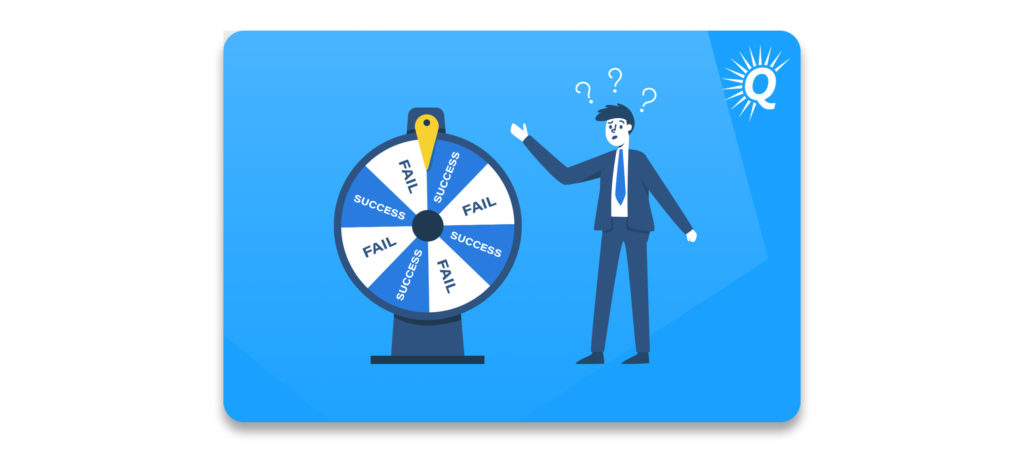Topics:
Never Miss a Beat - Get Updates Direct to Your Inbox
FILTER:


How Much Can You Sell Your Business For?
By Quiet Light
If you’re a successful business owner thinking about your exit, you may have wondered “How much can you sell your business for?” While there are many factors that go into the sale of your business, valuing your business is a crucial step in determining your asking price.
In this article, we cover everything you need to know about accurately valuing your business to sell, including:
- Why it’s important to know the true value of your business
- A step-by-step guide to the valuation process that takes out all the guesswork
- How to improve the value of your business by increasing the number of services or products you offer
- How to tell the story of your business financials through a quality earnings report


Why do you need to know what your business is worth?
Having an accurate business valuation lays the foundation for a successful exit plan. A business valuation helps you decide whether or not you want to sell, as well as when to time the sale.
But getting a business valuation isn’t just about a dollar amount. Regardless of whether you’re a small business owner or you own a large enterprise, knowing what your business is worth also helps you create a map to increase your business’s value and plan out your successful exit. When you go through the valuation process with a business broker, you’ll also gain a better understanding about the strengths and weaknesses of your company.
Thinking of Selling Your Business?
Get a free, individually-tailored valuation and business-readiness assessment. Sell when you're ready. Not a minute before.
During a valuation, a business Advisor looks at your business’s cash flow, tangible assets, and intangible assets to determine its fair market value. If you discover through the valuation process that you’re in a position to meet your exit goals, you can confidently move forward with the sale process.
But if you find out that your business is valued at less than you expected, you could hold off on selling and focus on increasing the value of your business.
When to get a valuation of your business
It’s easy to get caught in the day-to-day operations of running a business. But successful business owners take a long-term approach. This means planning ahead now for an exit—even if you never sell your business.
Practically, the valuation process can start as soon as you’re able to provide the required financial documents. If gathering documentation is holding you back, you can begin by putting a system into place so that you can confidently find any financial statement an Advisor requests during the process.
How to maximize the value of your business
When you decide to sell your business, there are many factors that are out of your control. You can’t control the interest of potential buyers or what the market looks like.


However, you can determine your business value gap-the difference between what your current business value is and the price you want it to sell for you in the future. When you’re aware of potential growth opportunities, you can make choices that help you maximize your company value and close the gap.
Specific ways you can increase the value of your business include:
- Timing the sale of your business during a period of growth
- Minimizing your risk
- Ensuring a smooth transfer process
Time your sale during a period of growth
A potential buyer is looking for a business with strong growth trends. If you want to maximize your business value and sales price, time the sale of your business during a period of sustained growth.
Don’t forget to take seasonal fluctuations into account. Do your sales numbers plummet after the holiday season is over? Avoid selling your business in the post-Christmas sales slump.
Minimize your risk
What are some of the weak links in your daily business operations? When you minimize your risk, you maximize your business value.
Maybe your company currently sells one product. How will you handle supply chain issues that have become commonplace in today’s marketplace? If you’re thinking about selling your business, think about diversifying your product or service offering.


Or you might rely on one type of marketing to spread the word about your business. But what if that social media platform you love grows less popular in the coming years? Minimize your risk by paying for advertising on different channels or networking with affiliates to expand and strengthen your marketing efforts.
Ensure a smooth transfer process
Take a look at your business operations, imagining as if you were a new owner. Would a buyer be able to step into the day-to-day routines of your business and confidently learn the processes and make decisions?
Identify some of the roadblocks to a potential new owner’s success. Then, work to mitigate those issues now so that a new owner can hit the ground running from day one.
How to value your business for sale
There are many steps between valuing your business to landing that successful exit. Some of the important steps in this initial stage of the selling process include things such as:
- Defining your exit goals and strategy
- Deciding who will value your business for sale
- Understanding what determines your business worth
Questions to help you define your exit strategy
Up until this point, you probably spend much more time thinking about your short-term business goals than you do thinking about what a successful exit looks like. But if you’re seriously considering selling your business, it’s important to ask yourself some important questions to inform big decisions.
The following questions can help you define your dreams and goals for selling your business, as well as give you a big-picture overview of the business sale:
- What are the reasons driving your motivation to sell your business?
- What are the growth trends within your business?
- How would you describe your ideal potential buyer?
- What are the preferred deal terms you want to see in the final asset purchase agreement?
- How will selling your business impact your personal finances?
- Do you have the time and energy to get business documentation in order and vet a prospective buyer?
- Is your business easily transferable to a new owner?
Successfully selling your business
At first glance, this list of questions can seem overwhelming. However, on the other side of the due diligence process and paperwork signing, you’ll find new opportunities—and that’s something to get excited about!


Maybe selling your business opens up a significant cash flow and gives you the opportunity to pursue something that’s been on your bucket list for years. Or perhaps a sale will be a chance to pursue a totally new and unique business opportunity. Whether you’re dreaming about moving your family to a new state or relaxing on a beach somewhere solo, selling a business can change your life.
Who should calculate your business value?
You have multiple options when it comes to valuing the business you’re planning to sell. One way is to use a valuation calculator. These calculators take metrics such as your business’s earnings, category, and age into account. Using a valuation calculator is quick and easy, but the downside is that they don’t take into account other important variables that impact the true value of your business. So while they can be a good place to start, their accuracy is limited.
Buy a Profitable Online Business
Outsmart the startup game and check out our listings. You can request a summary on any business without any further obligation.
Meanwhile, you can work with a qualified business Advisor to get a free valuation. Unlike business valuation calculators, business brokers can provide a thorough examination of your business. This provides you with an accurate valuation as well as valuable insight into the strong and weak points of your business. This gained knowledge allows you to make improvements to your business and maximize its value before selling.
What determines your business value?
During the business valuation process, a business broker will identify all of your addbacks—expenses that won’t carry over to the buyer. Properly calculating all of your addbacks ensures that you’re not leaving any money on the table when it comes to calculating seller’s discretionary earnings and cash flow.
Our business valuation method here at Quiet Light is based on The Four Pillars of Value, which include:
- Growth
- Risk
- Transferability
- Documentation
After a business broker sees how your business stacks up to the Four Pillars of Value, they give your business a multiple. An earnings multiple determines how valuable your online business is in relation to its earnings.


Let’s say your business is experiencing off the charts growth right now. Your risks are minimal and because you have a great system in place to document your important business information, a new owner could step in quickly and confidently. All of those factors point to a high multiple.
On the other hand, you might only sell one product or service. If you’re experiencing a decline in your revenue and are disorganized when it comes to documenting your processes, your business will be valued by a business broker at a lower multiple.
Owning a business means utilizing accurate information to make smart business decisions. So regardless of whether you’re hoping to sell within six months or years down the road, a business valuation can provide you with helpful information to grow your business value with confidence.
Increasing your business value through expanded offerings
One way to increase the value of your business is to grow the quantity of products you sell or services you offer. Not only is this process exciting in the present moment when you’re the business owner, it also has long-term ramifications. The more your business value increases, the more money you can receive from a buyer if you decide to make an exit in the future.
Higher business value gives business owners a better position to negotiate offers and agree upon beneficial deal terms. Growing that final asking price is a great motivation when it comes to building the quantity of your brand offerings.
What are the advantages of launching more products?
Increasing the quantity of your products stocked or services offered does more than just decrease your overall business costs. Other advantages of a higher quantity business model include:
- Reducing your per-product or per-service cost
- Improving the customer experience
- Future-proofing your business
Reducing costs
At first glance, it would seem that increasing the quantity of your business would also increase the overall costs associated with running your company. However, when you expand your product line or services offered, you can actually increase your profit by reducing overall cost.
For instance, you might fulfill customer orders yourself. If that’s the case, you already have physical space dedicated to product storage, packaging, and shipping. By increasing the quantity of products that you process through this space, you continue to pay the same amount to utilize the space, but process more products through. This decreases your costs and increases the quantity (and value!) of your business with one fell swoop.


Improving the customer experience
Adding a new line of services or products can increase your customer experience and retention rate. Because your customers already consider you as the subject matter expert in your current offerings, you can continue to build their trust by reliving additional pain points customers might be experiencing.
For example, maybe your current business sells skin care products. One problem customers could run into is having to remember to order a favorite product before it runs out. By offering a subscription plan so that customers don’t have to think about replacing something they use everyday, you free up some of their mental load and provide the solution they’re looking for.
Increasing the quantity of your products or services can also boost your public brand image. This is especially valuable if you run a FBA Amazon business, where the quantity and quality of customer ratings make a big difference in business value.
Future proof your business through increased quantities
Over the past two years, we’ve seen the impact of supply chain issues, increased lead times, and labor shortages. Not only does increasing the quantity of your business help you future proof your business by mitigating risk, it also can also boost your business position among competitors and increase your overall business value in the business valuation process.


Diversifying your business to increase the quantity of sales or products your business generates can happen at different levels. You might add a similar product or service to your existing business, or you could expand your offerings to include a product or service in an entirely different category.
Taking time to identify growth opportunities in your business can help you increase your business value now and in the future.
Quality of earnings when valuing your business
A final tool to utilize when learning about how much you can sell your business for is the quality of earnings report, sometimes referred to as a QOE or QofE report. This report gets into the nitty-gritty details of your businesses’ finances and cash flows. It’s a crucial part of the financial due diligence process.
If you’re prepared for the process, a quality of earnings report shouldn’t generate any surprises about your company. Instead, a quality of earnings report helps you gain buyer confidence and showcase your business operations. Once a buyer gets to know the story of your company, they’ll be able to make an informed decision about acquiring your business.
What is included in a quality of earnings report?
A quality of earnings report is generated by an independent third party. The report discusses many aspects of your business financials, including:
- An analysis of EBITDA (Earnings before interest, tax, depreciation, and amortization) and the addbacks that bridge the gap between reported and adjusted EBITDA
- Business operating expenses
- Employee analysis
- Balance sheet highlights
- Any fluctuations in monthly and annual financial information
- Inventory reserves
A quality earning report also answers questions for the buyer, such as:
- Does the business manage their cash flow well?
- How does this company adjust to setbacks?
- What discretionary expenses does the business have?
- Are there any one-time events that affected business performance?
- What does the future look like for this business?


Although the report examines your business finances, a quality of earnings report isn’t an audit. Audits focus on whether or not a business is complying with Generally Accepted Accounting Principles (GAAP). A quality of earnings report focuses on helping a buyer understand a businesses’ historical sales and future potential.
What are the benefits of a quality of earnings report?
There are many benefits to generating a quality of earnings report from the seller’s perspective. You’ll have a better understanding of your business’s earnings and be prepared to sell it at a price that honors your hard work.
A quality of earnings report also communicates to potential buyers that you’re ready to sell your company and are prepared to invest the time necessary for the sales process.


Reviewing the quality of earnings report with a trusted business Advisor helps you prepare to answer any tough questions from potential buyers during the sales process. It also ensures that all of your add-backs are accounted for so that you don’t leave any money on the table during the negotiation process. .
At Quiet Light, our business Advisors have all bought or sold an online business. So if you want to know more about valuation, quality of earnings reports, or any other questions about selling your business, you can always reach out for a no-obligation valuation.
We’d love to meet you and hear about the story of your business and the dreams you have for the future!
Thinking of Selling Your Business?
Get a free, individually-tailored valuation and business-readiness assessment. Sell when you're ready. Not a minute before.





